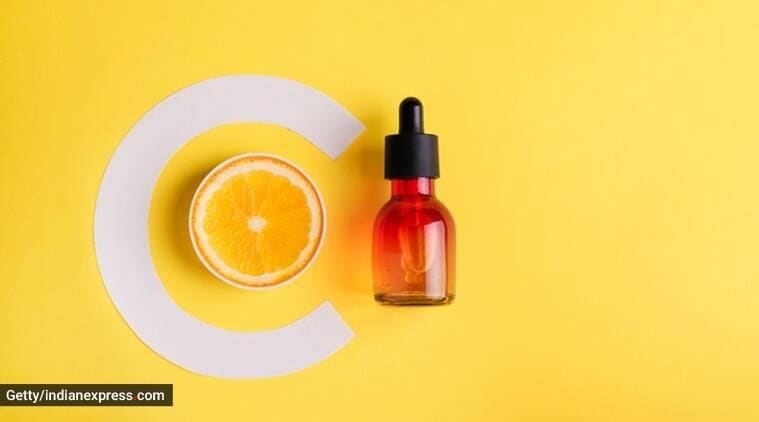‘Usually, there are no side effects of antioxidants,’ say experts, but consuming too much can…

Do you frequently come across the word ‘antioxidants’ while reading up on health, nutrition, and skincare? It is advised to have an antioxidant-rich diet and use skincare products with antioxidant-rich ingredients for better health and skin. But, what exactly are they?
‘Anti’ means against and ‘oxidant’ means molecules that form free radicals. Simply put, antioxidants are natural or man-made compounds which help neutralise the harmful free radicals and oxides in our bodies. “Free radicals are highly reactive atoms or molecules with unpaired electrons and are formed when oxygen interacts with certain stressors. These radicals are harmful to our body,” explained functional nutritionist Mugdha Pradhan, CEO and Founder of iThrive.
Before we understand antioxidants, it’s crucial to understand where these free radicals come from. Elucidating, Aman Puri, Founder, Steadfast Nutrition, said, “Our body produces waste products called free radicals or reactive oxygen species (ROS) in response to factors such as pollution, exposure to ultraviolet rays, cigarette smoke, inflammation in the body, and consumption of highly processed foods.”
Buy Now | Our best subscription plan now has a special price
Agreeing, Dr Priyanka Rohatgi, Chief Nutritionist and Dietician at Apollo Hospitals, Bangalore said that while free radicals are very damaging by their very nature, they are an inescapable part of our lives. “They are also a natural by-product of normal processes in cells. When the immune system musters to fight intruders, for example, the oxygen it uses spins off an army of free radicals that destroy viruses, bacteria and damaged body cells in an oxidative burst.”
Because free radicals are so pervasive, you need an adequate supply of antioxidants in scavenging them to avoid any harm to the body’s cells.
How do antioxidants work?
They work by decreasing the oxidative damage, directly, by reacting with them or, indirectly, by enhancing the activity of intracellular antioxidant enzymes, experts said. “They are also involved in DNA repair mechanism and maintain the health of cells,” Dr Devi R, Consultant – Reproductive Medicine, Milann Fertility Hospital, Indiranagar, Bangalore said.
But, did you know that your body produces some antioxidants, too? “Your body’s cells naturally produce some powerful antioxidants, such as alpha lipoic acid and glutathione. The foods you eat supply other antioxidants, such as vitamins C and E,” Dr Rohatgi shared.
 It can be found in colourful fruits and vegetables, especially those with purple, blue, red, orange, and yellow hues (Source: Pexels)
It can be found in colourful fruits and vegetables, especially those with purple, blue, red, orange, and yellow hues (Source: Pexels)
Benefits of antioxidants
Now that we know that antioxidants fight free radicals, let’s understand how they, consequently, aid our health. A diet rich in antioxidants may reduce the risk of many diseases including heart disease and certain cancers, the expert said.
Puri elaborated that “they can effectively help lower the risk of cancer, cardiovascular diseases, cataracts, and age-related macular degeneration (AMD). An antioxidant-rich diet helps boost mental health, improves immunity, and delays the signs of ageing“.
Antioxidants and skin
The resultant damage caused by free radicals can be seen on one’s skin, too. They lead to “breakdown of skin’s collagen and elastin, which can take the shape of premature ageing, inflammation and hyperpigmentation,” Dr Naren Prakash, Consultant Dermatology, Narayana Superspeciality Hospital, Gurugram said.
Countering these negative impacts are antioxidants which “help prevent the oxidative stress that leads to signs of ageing like fine lines, wrinkles, loose skin etc. They also help prevent photodamage by blunting your skin’s inflammatory response to sun exposure”.
Additionally, they also help in decreasing hyperpigmentation induced by the inflammatory process and hasten skin repair, she said. So, how does one introduce antioxidants in their skincare regime? “A lot of products boast of antioxidant power but not all are equal,” the dermatologist said, sharing the antioxidants you should look for.
*Vitamin A: often seen as retinol or tretinoin, it is particularly effective due to its small molecular structure allowing deeper penetration. It increases cellular turnover thereby helping in preventing wrinkles, fine lines etc.
*Vitamin C: Often seen as ascorbic acid, it is one of the most effective free radical scavengers.
Vitamin E, B3, Melatonin, Resveratrol, Glutathione, Polyphenols, Ginkgo Biloba, and Coenzyme Q10 are some other commonly-used antioxidants for skin, he added.
Apart from the topical application of these antioxidants, Dr Prakash suggested consuming a diet rich in them to boost your skin health.
 Often seen as ascorbic acid, vitamin C is one of the most effective free radical scavengers (Source: Getty Images/Thinkstock)
Often seen as ascorbic acid, vitamin C is one of the most effective free radical scavengers (Source: Getty Images/Thinkstock)
Dietary sources of antioxidants
According to Puri, the best way to consume antioxidants is through plant-based sources like berries (blueberries, strawberries, and goji berries), bell peppers, broccoli, beetroot, carrot, tomato, pomegranate, sweet potato, kale, spinach, nuts, dark chocolates, herbs and spices, and others.
Further, Dr Rohatgi explained that three of the major antioxidant vitamins — beta-carotene, vitamin C and vitamin E — can be found in colourful fruits and vegetables, especially those with purple, blue, red, orange, and yellow hues.
Beta-carotene and other carotenoids: Apricots, asparagus, beets, broccoli, cantaloupe, carrots, corn, green peppers, kale, mangoes, turnip and collard greens, nectarines, peaches, pink grapefruit, pumpkin, squash, spinach, sweet potato, tangerines, tomatoes, and watermelon
Vitamin C: Berries, broccoli, brussels sprouts, cantaloupe, cauliflower, grapefruit, honeydew, kale, kiwi, mango, nectarine, orange, papaya, snow peas, sweet potato, strawberries, tomatoes, and red, green, or yellow peppers
Vitamin E: Broccoli (boiled), avocado, chard, mustard and turnip greens, mangoes, nuts, papaya, pumpkin, red peppers, spinach (boiled), and sunflower seeds
Other antioxidants that can help keep you healthy include:
Zinc: Oysters, red meat, poultry, beans, nuts, seafood, whole grains and dairy products
Selenium: Brazil nuts, tuna, beef, poultry, fortified bread, and other grain products
Cooking tip: To get the biggest benefits of antioxidants, eat these foods raw or lightly steamed. Don’t overcook or boil them.
How to consume them?
It is not just the food items but also how you consume them that matters. Elaborating, Dr Rohatgi said, Right from how you pair your foods to how you eat them, there are numerous ways that can impact the way the body absorbs the nutrients. This is why even if you are eating nutrient-rich foods, you might not be getting all the nutrients.”
As such, follow these tips while consuming an antioxidant-rich diet.
*Combine foods mindfully – The bioavailability and assimilation can vary based on combinations, medium for absorption and the presence or absence of other nutrients.
*Ensure properly breakdown by careful chewing – If you are the kind of person who finishes everything on their plate within 5 minutes, then there is a high chance that the nutrients will not be absorbed in the body. Chewing breaks down the cell wall of food items, thereby, helping in the absorption of nutrients. So, remember to chew your food slowly and properly so as to ensure the absorption of nutrients from food.
*Stress-free but portion-controlled eating – Eat mindfully by savouring each and every bite. Also, relish every bite you eat as it helps in the secretion of the digestive juices in the stomach and allows it to mix with the ingested food.
*Eat it or drink it – As a rule, it is advised to chew your fruits properly than drinking juices.
*Ensure good gut microbiome – Keeping a healthy gut ensures better absorption and assimilation. It ensures good immunity and also maximises the absorption of nutrients by the intestine. Dietary fibre is known to enhance the absorption of minerals such as magnesium, iron, and calcium.
 Fresh amla juice is excellent when taken regularly for preventing skin and hair troubles (Source: Getty Images/Thinkstock)
Fresh amla juice is excellent when taken regularly for preventing skin and hair troubles (Source: Getty Images/Thinkstock)
What Ayurveda says
Not just modern science, Ayurveda, too, backs the benefits of antioxidants. “Rasayanas, owing to their antioxidant potential, can prevent and in many cases reverse the damage caused by reactive oxygen species. These antioxidants help upkeep the metabolism, protecting the vital organs from damage. For skin, this means a plump, radiant and hydrated appearance. Antioxidants can prevent collagen damage and the appearance of saggy skin and hair fall. The anti-inflammatory activity of the antioxidants protects the natural colour of the skin and hair,” said Dr Zeel Gandhi (BAMS), in-house expert at Vedix – a beauty brand offering customised modern Ayurveda beauty regimen.
Amla, Haritaki, Guduchi, Punarnanva, Ashwagandha, Brahmi, Shatavari, Yashtimadhu, Shankhapushpi, Bhringraj, and Daruharidra are some of the herbs which have strong Rasayana action and are extensively studied and documented by modern scientists for their antioxidant potential, she added.
If these herbs confuse you, “fresh amla juice is excellent when taken regularly for preventing skin and hair troubles”. “Lemons, as we know, are a powerhouse of Vitamin C. ‘A lemon a day keeps reactive oxygen species at bay’ should be our new sutra. Have it with warm water, squeezed over your dal or on zesty sprouts,” she said.
How much is too much?
While there is no standard recommended amount of antioxidants to be taken in a day, excessive intake may be harmful to you. It can lead to “micronutrient toxicity in the body and can show some minor side effects such as nausea, diarrhoea, constipation, rashes, dizziness, and joint pain,” Puri said.
Agreeing, Pradhan said, “There, usually, are no side effects of antioxidants such as glutathione. However, if one consumes too many vegetables in an attempt to get antioxidants it can be detrimental because most vegetables have anti-nutrients like oxalates, phytates, tannins, lectins and these can harm your body.”
Overconsumption of antioxidants may also present certain severe symptoms. “Vitamin A may even increase the risk of birth defects. If you are pregnant, always talk to your doctor before taking any supplements for antioxidants as it can also increase your risk of some types of cancers and can lower your exercise capabilities. Common side effects of over-consuming antioxidants are diarrhoea, dizziness and joint pain. You might also experience a yellow pigmentation of the skin due to the antioxidant carotene. Another rare side effect is bruising under the skin. Cooking some foods can either increase or decrease their antioxidant levels. They might also not react well for your body if consumed along with certain medicines,” Dr Rohatgi explained.
While loose stools, constipation and upset stomach are some of the temporary side effects and may disappear, Dr Devi said that high-dose of antioxidants supplementation can cause harm and even increase the risk of cancer. “Supplementing with high doses of beta-carotene may increase the risk of lung cancer in smokers. High doses of vitamin E supplementation may increase risks of prostate cancer.”
📣 For more lifestyle news, follow us on Instagram | Twitter | Facebook and don’t miss out on the latest updates!

